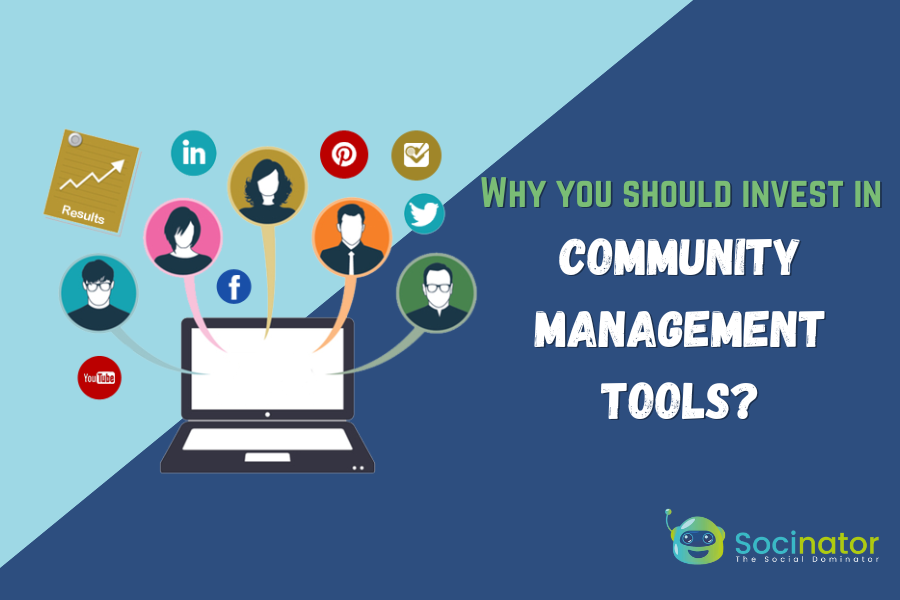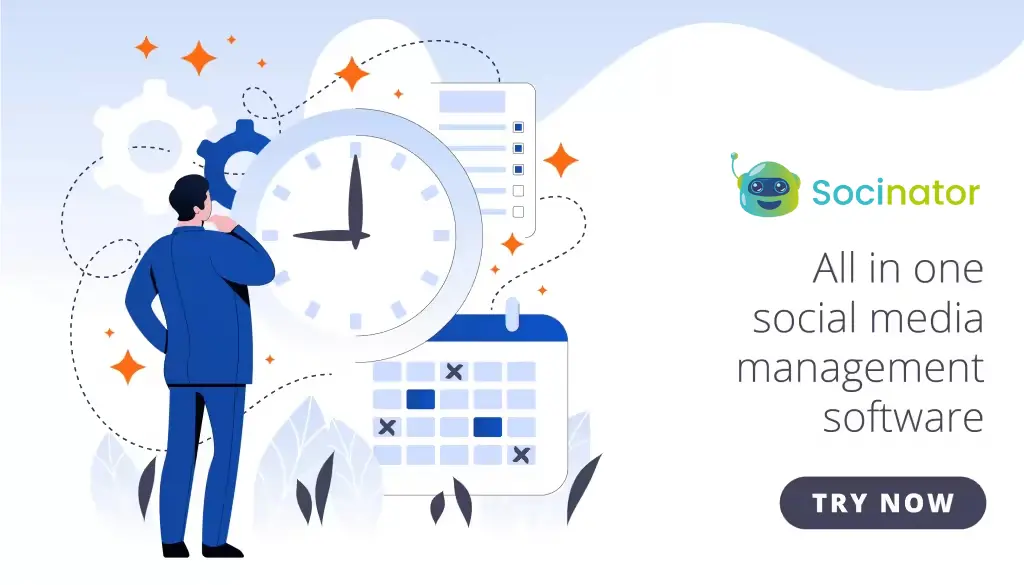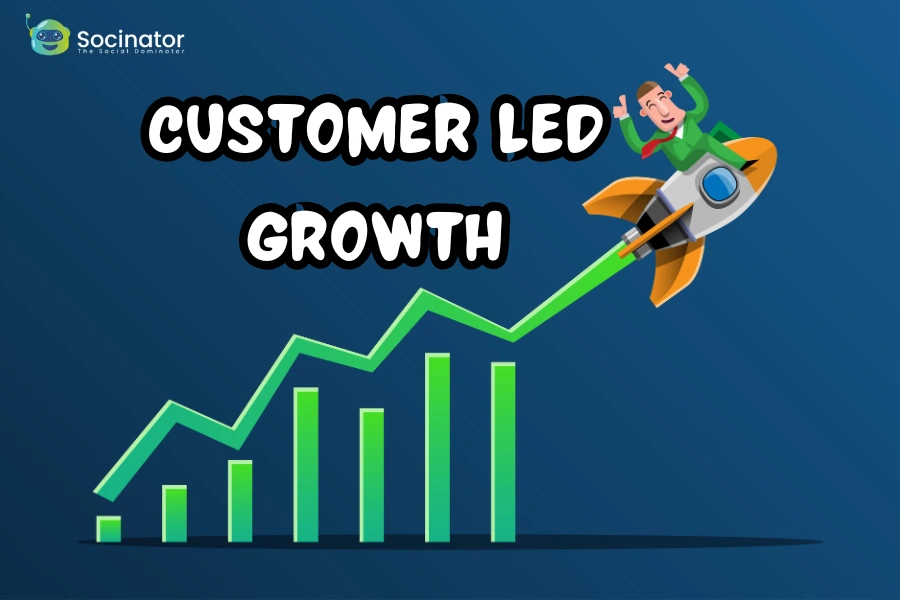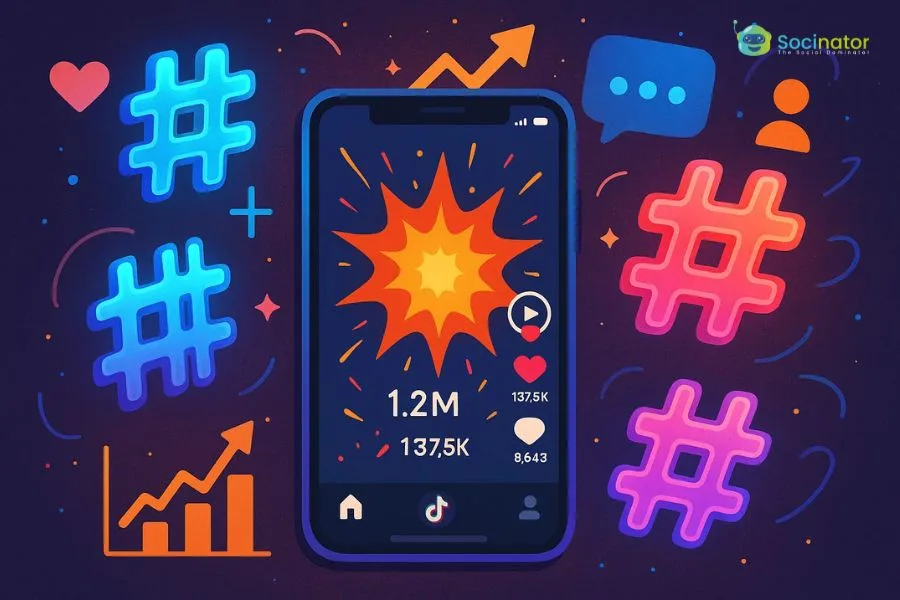In today’s online world, where a simple click can link people from different corners of the globe, communities are booming. These communities can be about anything – from hobbies to work-related stuff to causes people care about.
They’re like busy places where folks chat, work together, and help each other out. But here’s the thing: these communities don’t just magically come together. They require a guide who knows what they’re doing, someone to lead them. That’s where community management comes in.
It’s all about ensuring everyone feels welcome and that things run smoothly. But what makes everything work smoothly behind the scenes? Its community management tools. These digital helpers make everything easier like wind pushing a sailboat forward. They aid managers and members by streamlining tasks and enhancing everyone’s experience.
These tools encompass platforms for communication and collaboration, along with features that facilitate insight into community performance, such as analyzing data and patterns. With these tools, managing a community is easier.
So, next time you’re hanging out in an online group talking about your favorite hobby or getting advice from fellow professionals, remember that there’s probably someone behind the scenes making sure everything runs smoothly. That’s the magic of community management!
Listen To The Podcast Now!
What is community management, and what are its tools?
Community management involves regulating and sustaining online communities centered around a particular brand, product, service, or shared interest. It encompasses various tasks such as fostering engagement, facilitating discussions, providing support, and maintaining a positive environment within the community. Community managers play a crucial role in fostering relationships with community members, meeting their needs, and advocating for the organization’s interests.
These tools are designed to aid community managers in their tasks by helping to streamline community management processes, enhance communication, and provide valuable insights into community dynamics.
These tools empower community managers to effectively manage and grow online communities, enhancing meaningful connections and driving positive outcomes for community members and the organization they represent.
The Responsibilities of Community Managers –
Community managers serve as the foundation that holds a community together. Their responsibilities encompass a wide range of tasks, each aimed to develop and elevate social media community management tool –
Community Advocacy: Community managers serve as ambassadors, supporting the interests of members both within and outside the community. They advocate for resources, address concerns, and convey the community’s collective voice to stakeholders.
Content Curation and Creation: From moderating discussions to sharing relevant content, community managers play a crucial role in shaping the narrative and facilitating knowledge exchange within the community. They curate existing resources, create original content, and ensure that knowledge is accurate, timely, and valuable.
Engagement and Interaction: Community managers are catalysts for engagement, sparking conversations, posing thought-provoking questions, and encouraging members to share their insights and experiences. They leverage various platforms and communication channels to facilitate interaction and foster a sense of belonging.
Conflict Resolution: Conflicts are inevitable in any community, but effective management can prevent them from escalating and disrupting harmony. Community managers act as mediators, facilitating constructive dialogue, finding common ground, and resolving disputes fairly and impartially.
Gain Insights: Data-driven decision-making is essential for optimizing community engagement and performance. Community managers leverage analytics tools to track key metrics, monitor trends, and gain insights into member behavior, preferences, and needs.
7 Reasons To Use Community Management Tools –
There are several compelling reasons why community managers should consider using community management software:
Efficiency:
Community management tools streamline processes and automate repetitive tasks, saving time and effort. They enable community managers to schedule posts, monitor engagement, and respond to messages more efficiently, allowing them to focus on strategic initiatives and building relationships with community members.
Organization:
Community management tools help organize and centralize community-related activities, content, and communications. They provide a single platform for managing multiple social media channels, forums, or groups, making it easier to stay organized and maintain consistency across platforms.
Engagement:
Community management tools like Socinator offer features to enhance engagement with community members, such as automated responses, scheduling of interactive content, and monitoring of discussions. By facilitating meaningful interactions and building a sense of community, these tools can help increase engagement and loyalty among members.
Analytics and Insights:
Many community management tools provide analytics and reporting capabilities to track key metrics such as engagement, reach, and sentiment. These insights help community managers understand what content resonates with their audience, identify trends, and make data-driven decisions to optimize their community strategies.
Moderation and Safety:
Community management tools offer moderation features to monitor and manage user-generated content, comments, and discussions. They help identify and address inappropriate or harmful behavior, ensuring a safe and respectful environment for community members.
Scalability:
Community management tools can scale with growing communities, accommodating larger audiences and more complex dynamics. They provide the ability to scale up user management, content distribution, and engagement strategies.
Collaboration:
Community management tools facilitate collaboration and teamwork among community managers and team members. They allow for seamless communication, task assignment, and project management, enabling teams to work together more effectively to achieve common goals.
Demonstrations of Community Management –
You might be a part of such communities without even knowing it. Let’s dive into some community management examples to understand more about them –
Online Forums:
These are like digital meeting places where people gather to discuss topics, they’re passionate about. Community managers ensure the forum stays organized, respectful, and engaging. They might start conversations, moderate discussions to prevent conflicts, and answer questions to keep the community active and helpful.
Social Media Groups:
Social media groups are like clubs or gatherings where people with similar interests come together online. Community managers oversee these groups, ensuring everyone follows the rules, participates positively, and feels included. They might share interesting content, respond to comments, and encourage interactions among members to strengthen the community.
Gaming Communities:
Have you ever played a game with others online? Gaming communities bring together players who enjoy similar games or gaming genres. Community managers ensure these communities are fun, fair, and welcoming for all members. They may organize tournaments, moderate gaming sessions, and provide support for technical issues or disputes to create a positive gaming experience for everyone involved.
Professional Networks:
Professional networks are communities of people in the same industry or field who connect to share knowledge, opportunities, and support. Community managers facilitate connections, discussions, and collaborations among members. They might organize events, share relevant resources, and foster a culture of learning and growth within the network.
Customer Support Communities:
If you’ve ever had a problem and asked for help online, someone is making sure you get the support you need.
Non-profit Organizations: Imagine being part of a group trying to make the world a better place. Someone’s there making sure everyone’s working together and helping those in need.
Brand Communities:
Have you ever followed your favorite brand online? Someone’s behind the scenes, making sure you’re happy with their products and services. They may provide exclusive content, gather feedback, and address concerns to strengthen the brand’s connection with its audience and drive positive brand sentiment.
In each of these examples, community managers play a crucial role in ensuring the smooth running of the community and making everyone feel welcome and supported.
Community management tools offer numerous benefits for community managers, ranging from increased efficiency and organization to enhanced engagement and safety. By leveraging social media automation tools like Socinator, community managers can effectively manage and grow their online communities while delivering value to their members.
Socinator for Community Management –
Socinator is a social media management tool that offers a range of features designed to assist community managers in effectively managing and growing their online communities.
How Socinator can aid in community management:
Posts scheduling: It allows you to schedule posts across multiple social media platforms, including Facebook, Twitter, Instagram, LinkedIn, Pinterest, and YouTube. This feature assists you in planning and organizing your content in advance, ensuring a consistent and engaging presence for your community.
Automated Interaction: Socinator offers automation features such as auto-replying to comments, direct messages, and mentions. This helps community managers streamline communication and promptly respond to community members’ inquiries, feedback, and interactions.
Community Monitoring: Socinator allows community managers to monitor social media conversations, mentions, and hashtags related to their brand or industry. This enables proactive engagement with the community, identification of emerging trends or issues, and opportunities for participation in relevant discussions.
Analytics and Reporting: It provides analytics and reporting tools to track the performance of social media posts and campaigns, allowing community managers to assess engagement metrics and optimize their strategies accordingly.
Broadcast Messages & Live Chat: Enhance your audience outreach with personalized broadcast messages and live chat, fostering deeper connections in real-time. Boost engagement and build stronger relationships by reaching out to your audience with tailored content and interactive conversations.
Automation tools can help community managers save time, increase efficiency, and enhance the overall effectiveness of their community management efforts.
Also Read:
The Ultimate Guide To Community Management Tools In 2024
How To Elevate Your Social Media Community Management Tool
Proactive Vs Reactive Marketing: Know The Difference
Wrapping up –
Community management is comparable to the invisible hand that keeps online groups active and connected, working quietly behind the scenes to ensure everything runs smoothly. It’s all about making everyone feel welcome and keeping things running smoothly. With the help of community management tools like Socinator, managers can make tasks easier, engage better, and understand their community’s needs.
As the online world keeps growing, community management remains crucial for creating spaces where people can come together, share ideas, and support each other. By guiding these communities with care, managers ensure they’re vibrant, inclusive, and areas where everyone can flourish and feel a sense of belonging.









